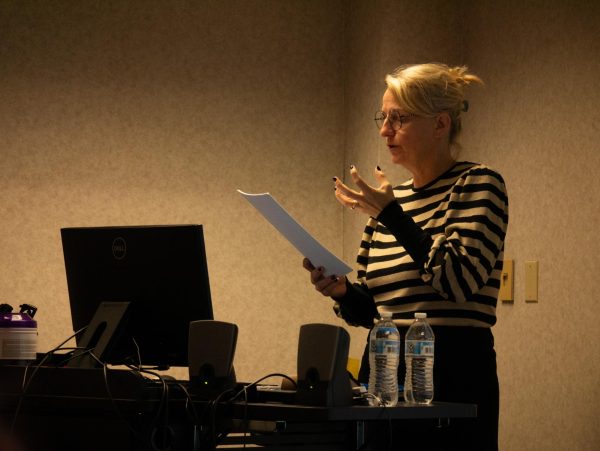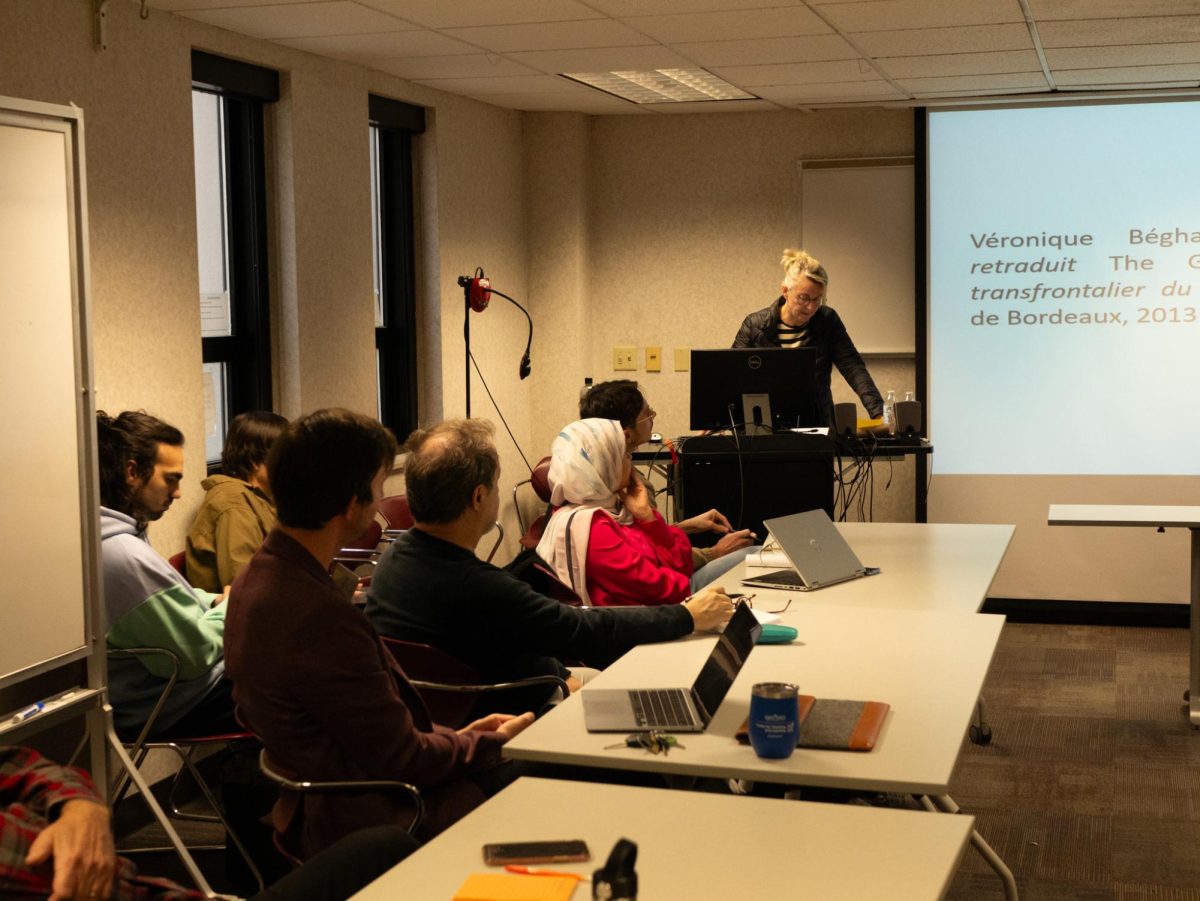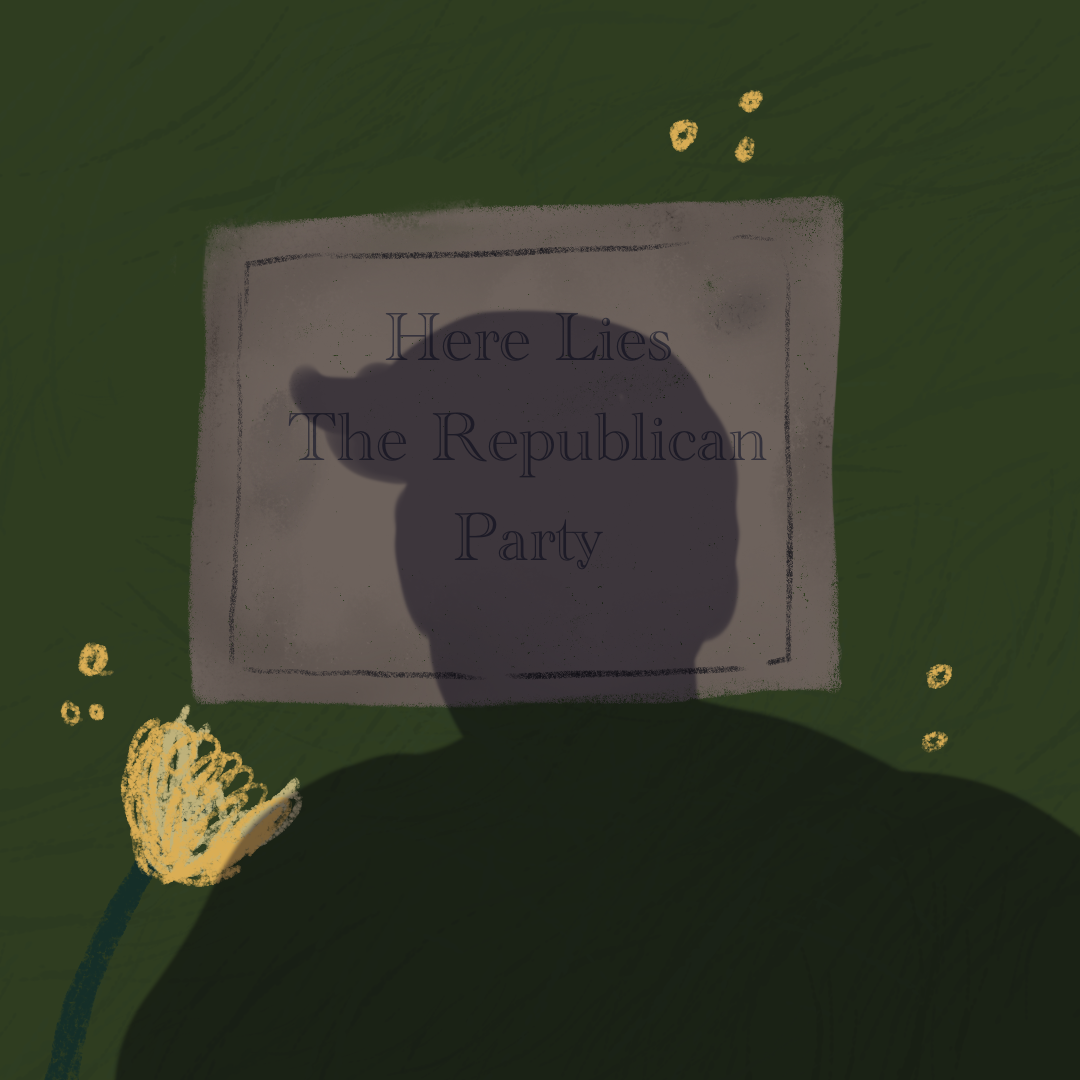Véronique Béghain, professor of literature and translation at the Université de Bordeaux Montaigne and the university’s contact for the French foreign exchange program, presented a lecture called “Giving French Voices to the Fitzgeralds” in Satterfield Hall Friday afternoon.
In Béghain’s first visit to the university, the lecture focused on her recent translation of a collection of F. Scott and Zelda Fitzgerald’s letters to each other.
The lecture was sponsored by the Department of Modern and Classic Language Studies and organized by Tersea Villa-Ignacio, associate professor of French and translation.
Before focusing her attention on the letters, Béghain discussed the quality of the previous French translations of F. Scott Fitzgerald’s stories. Béghain also discussed what objectives translators should keep in mind when translating the original text.
Literary works of F. Scott Fitzgerald referenced by Béghain included, “Tender is the Night,” “The Camel’s Back” and “The Jellybean” and the individuals who translated those works include Marguerite Chevalley, Jacques Tournier, Philippe Jaworski, Julie Wolkenstein and Suzanne Mayoux.
Moving forward, Béghain focused on how word choice in translations can affect the intended meaning, as shown when Mayoux changes the title of “The Camel’s Back” to “Le dos du dromadaire” compared to when Béghain changes the title to “Le chameau qui en avait plein le dos.”
Béghain said her translation title used a French expression similar to the common English expression “the straw that broke the camel’s back,” as F. Scott Fitzgerald intentionally titled his short story after such an expression.
“Relying on the metaphor in the English expression, [F. Scott Fitzgerald] writes a metatextual preamble meant to amuse his reader while pointing to this playful mastery of language,” she said.
Conveying this expression in the translation is an important task for translators. The usage of this expression will later aid in the understanding the reader has of the story, Béghain said.
“What is at stake here for the translators is to combine as the author does the diegetic intent of the story which includes a character disguised as a camel,” Béghain said. “The use of an idiomatic and lexicalized expression which is widely known.”

Another important objective of translating works is to help the reader envision what is being described to them. This led to Béghain translating the title of the F. Scott Fitzgerald short story “The Jellybean” to “Le cossard” rather than how Mayoux translated it to “La guimauve.”
“The word I used, cossard, seems to me to capture the image while vaguely activating the contextual, network, initiative of bean,” Béghain said. “Since the word cossard includes ‘cos’ which looks like bean shell.”
Béghain then focused on comparing the past translation of “Tender is the Night” by the following authors Chevalley, Tournier, Jaworski and Wolkenstein.
These authors’ backgrounds and their translation education varies as the translations of “Tender is the Night” span from 1967 to 2015, Béghain said.
“I hope to show the process that the displacement of words and translations should be viewed as historically bound and also socially situated,” Béghain said.
Béghain said she discovered rewrites in a majority of Chevalley’s translation with word changes changing what F. Scott Fitzgerald said.
The rewrites Béghain focused on were how Chevalley translated F. Scott Fitzgerald’s description of the Hotel du Cap-Eden-Roc, a hotel located in the French Riviera where Rosemary Hoyt and Dick and Nicole Driver stayed at in “Tender is the Night.”
“The description [of the hotel] is notably characterized by the various instances of personification, anthropomorphization of the building and surrounding floral,” Béghain said. “As possibly a stylistic strategy meant to impress immediately on the reader the idea that the place itself should be viewed as an actual protagonist.”
Chevalley changing how the palms nearby the hotel are described changes how F. Scott Fitzgerald intended for the palms to hint at social-class relations, Béghain said.
“The differential palms have been turned into ambiguous ‘des palmiers bien stylés’ whose characterization of well-trained or stylish palms largely fails to convey the [obscenity] that Fitzgerald had endowed them with,” Béghain.
Béghain then discussed the challenges she faced translating “Dearest Scott, Dearest Zelda: The Love Letters of F. Scott Fitzgerald and Zelda,” which totals to be 333 letters between the two, Béghain said.
Over the course of these correspondences, Zelda Fitzgerald was diagnosed and eventually hospitalized in different locations for her schizophrenia. This caused some of the letters F. Scott Fitzgerald wrote to her to be lost, Béghain said.
Since this was Béghain’s first time translating correspondents, she adjusted her standards for translating as she needed to make sense of obscure passages and deal with irregularities, Béghain said.
These irregularities included grammatical errors from Zelda Fitzgerald as a result of her mental illness.
“First of all the punctuation, [Zelda Fitzgerald] uses a lot of dashes but she’s not Emily Dickson,” Béghain said.
Both Fitzgeralds do not use final punctuation marks, which was another irregularity within their writings. Other irregularities include Zelda Fitzgerald’s creation of words – incorrect word choices and misspellings, Béghain said.
To remedy these challenges, Béghain said she had to consider who would be reading this novel.
“The solution I came up with which is the translator’s note, which I usually don’t do it but in this instance it was agreed with the publisher,” Béghain said. “I agreed with the publisher I would provide a translation note as a sort of warning.”
The translator note includes how the letters were not intended for publication and include the irregularities Béghain spoke about, she said.
After a questions and answers session where Béghain clarified her reasoning on past translations, students and faculty members joined Béghain for lunch in the Design Innovation Dining Hall.
Adriana Gasiewski is a staff reporter. Contact her at [email protected].





















